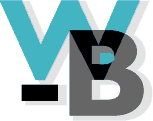

Workshop: Exploiting Fast and Slow Thinking
1/2 or 1 day
Suitable for small teams or larger groups. The full day workshop expands on selected topics and offers more group activities. Price: Contact us at training@wirfs-brock dot com.Price includes all course materials. Workshop leader travel and lodging expenses are extra.
As thinking human beings we can benefit from knowing more about how we think, deliberate and decide. Thinking, Fast and Slow, by Daniel Kahneman, explains two systems that drive how we think. System 1 thinking is fast, intuitive, and emotional; System 2 is slow, deliberate, and logical. In this workshop you will learn how fast and slow thinking affects your decision making. You’ll explore how common development practices, with an emphasis on agile practices, can amplify your thinking abilities and how they might lead you astray. And you will practical techniques for counteracting fast thinking biases.
Objectives
At the completion of this workshop attendees should be able to
•Understand type 1 (fast) and type 2 (slow) thinking and how they interact
•Appreciate how specific agile practices foster effective thinking and how they might trip you up
•Learn how cognitive biases and replacing hard questions with simpler ones impact decision-making and forming opinions
•Learn how a pre-retrospective can help a team uncover risks and concerns when faced with an important decision
•Learn how to reframe your reactions in fast and slow thinking terms
Topics
Prerequisites
None.
Audience
Who should attend?
Workshop Information
Approximately 60% of the workshop is short exercises, discussions, and project simulations, 40% short lectures.
|
Entire Site © Wirfs-Brock Associates 2005 - 2022.
Click here to contact the Webmaster. |
|
||
|
|
|
|